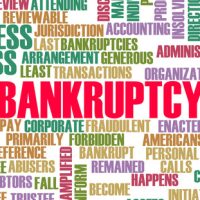When Financial Changes Interrupt Chapter 13 Payment Plans

Job loss—medical emergency—natural disaster—who knows when a financial emergency could turn your world upside down. It’s bad enough during normal times—but what if you’re hit with a financial crisis when you’re in the middle of trying to pay off debt through a Chapter 13 restructuring? Don’t panic—even in this situation, you do have some options. While none of the alternatives are ideal, each has benefits and consequences worth considering.
Short-Term Solution
If circumstances change dramatically and your income level tanks, rest assured that the bankruptcy system can flex with your needs. It’s not necessarily a walk in the park, but it can be done. The trustee may be willing to work with you if you need to modify your payment plan for a short period. Beware, though, of interest and fees building up.
Long-Term Possibilities
In the event you need more than a short period to get on top of things, more drastic action will need to be taken. A few options include:
- Permanently Lowering Chapter 13 Payments
- You may have to return some secured property—such a s your vehicle or your home– to the lender in order to eliminate that part of your debt.
- You could sell other high-value property that was not protected in your exemptions and use that money to pay the trustee, thus eliminating that particular bill;
- You might be able to lower payments on medical bills, credit cards, personal loans, and so forth—but payments are likely already pretty low, so this may not help much.
- Request a Chapter 13 Hardship Discharge
- A remote possibility is that you could qualify for an early discharge of debt due to hardship—but this is generally approved only if medical bills, credit cards, student loans, and similar unsecured debt is already paid off. Unfortunately, unsecured creditors are not usually paid off early on in the bankruptcy process.
- Convert to Chapter 7 Bankruptcy
- Converting to Chapter 7 will quickly eliminate your qualifying debt, but it also means you will have to part with property in order to pay creditors.
- Dismiss Your Chapter 13 Case
- If your Chapter 13 Bankruptcy is causing you more harm than good, you can always dismiss it, or stop making payments to the trustee until the court dismisses it. That, however, leaves you still owing on your debt, which creditors could add interest to.
Fighting for You
The experienced Miami bankruptcy attorneys at the Law Office of Julia Kefalinos understand the difficulties associated with bankruptcy and always endeavor to make things work out to your advantage. To discuss your situation, schedule a confidential consultation in our Miami office today.
Source:
uscourts.gov/court-programs/bankruptcy/bankruptcy-basics/chapter-13-bankruptcy-basics

